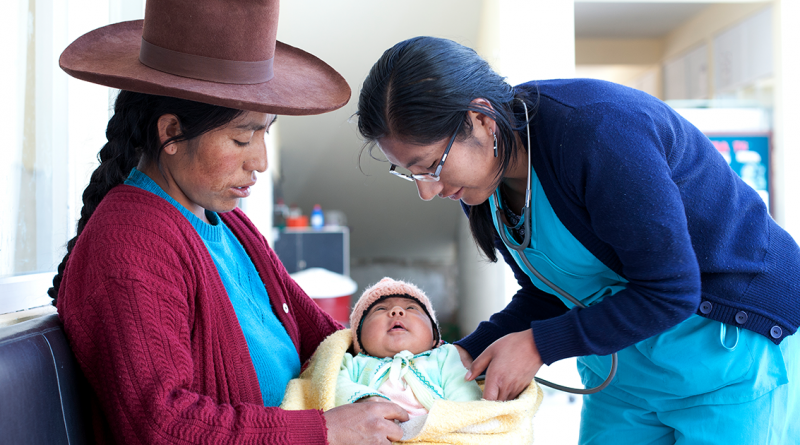Movimiento Salud 2030 – The Health Movement 2030
Bogi Eliasen is director of health at the Copenhagen Institute for Future Studies. This blog post was co-written with Rolf Hoenger, area head at Roche Pharma Latin America, and Rifat Atun, professor of global health systems at Harvard University.
Movimiento Salud 2030 is a bold initiative which was launched in 2020 in nine countries simultaneously. Its aim is to improve health systems in Latin America to deliver better and more equitable health outcomes.
Movimiento Salud 2030 fosters broad cross-sector and cross-country collaboration in a concerted top-down and bottom-up approach by including local national ecosystems with leaders in relevant fields. Movimiento Salud 2030 supports concrete solutions initiated to solve challenges identified by local stakeholders in order transform health systems in Latin America to become better and more sustainable by 2030.
The COVID-19 pandemic has revealed the Latin American health system’s weaknesses and presented challenges to building Movimiento Salud 2030 due to travel restrictions and the time demands of crisis management for many participants in countries.
However, as the need was made clear by the COVID-19 pandemic, the impetus to create better health systems was also clear to stakeholders and we managed to overcome the barriers of COVID-19. We ran an entire year of activities online in 2020 and it became such a success that the Movimiento Salud 2030 concept will soon be rolled out globally with the aspiration to become the world’s leading healthcare innovation network.
The first step in this initiative was to create a thorough literature review and more general research, conduct interviews, and facilitate expert roundtables with the goal to create an overview of not just the largest challenges, but also the opportunities and ways to enable them. In identifying the challenges, the intention was to pinpoint the real bottlenecks for transformative change as well as evaluating how to work with them.
This led to the selection of four focus areas, connected by a fifth – namely interoperability. In this process, we also learned that low budget execution is one of – if not the largest – barriers in creating change.
The four focus areas will simultaneously be built in the respective countries’ ecosystem as well as cross-border in the region.

The fifth element, not visible in the model above, is interoperability which is required to deliver integrated care supported by digital capabilities that allow the system to gather, analyze and share relevant data related to the patient.
Toward a Peruvian pilot
One of the main findings from the research, interviews, and roundtables in Latin America was that budget execution is a monumental challenge in many countries. Most Latin American countries have low public spending on health and on top of that many of them also face challenges in executing their budgets. Hence, a substantial part of the already scarce resources are not spent exacerbating the shortcomings of the health services.
To solve these challenges Movimiento Salud 2030 identified an opportunity to develop solutions with a focus on doing the right things right, i.e., spending the allocated budgets on the right things without creating unnecessary waste.
When the former Peruvian president, Martín Vizcarra, in his yearly address to the nation on July 28th, 2020 promised a substantial increase of the health budget, the Movimiento Salud 2030 consortia reacted quickly by establishing a task force in Peru. Additionally, we entered a dialogue with the key opinion leaders, including former ministers of health on how to improve the health system in Peru.
We put emphasis on how to solve the challenges of low budget execution while also improving the quality of health services, especially now as substantially more funding might be allocated to the health system while keeping in mind that the health budget execution is approx. 65-70% for many of regions in Peru.
The interview participants felt that an integrated and a holistic solution could best be achieved through a regional pilot that was underpinned by a real-time digital data management system, where the challenges identified by the respondents and could be addressed in a comprehensive, integrated, and holistic manner.
The Peruvian health system is complex and one of the biggest challenges is the lack of data systems and analytics to link plans, budgets and targets, visualize business process flows, and assess delays in budget execution. This is sorely needed so both payers (Ministry of Health and Ministry of Finance) as well as the service provider can have a continuous overview of the necessary intelligence to inform real time decision making in as well as to follow use of resources.
While there are many challenges, we chose to focus the Peruvian pilot on implementation of better budget execution as it enables further development in other areas. We are tackling budget execution on four levels: legislative, institutional, operational, and instrumental. The legislative includes solutions such as reviewing legislation, establishing a unified pool of funding, and reducing fragmentation.
The institutional level features establishing a needs assessment unit, reviewing budget management, establishing digital data systems, and establishing a cross-disciplinary “Delivery Unit.” On the operational level we focus on creation of a demonstration project and a digital course on budget planning. Lastly on the instrumental level, establishing a three to five year transition plan, creation of standard operating procedures, and quarterly budget reviews.
To summarize, the Peruvian pilot is addressing the challenges of a digital structure in concern of the digital structure is addressing the challenges in the following step-wise manner to create a better and more sustainable digital structure for health system, that builds the backbone for the necessary infrastructure for information with traceability, transparency and accountability.
The Peruvian pilot will be presented on March 4th by the Peruvian Health Ministry, Regional Government of Cuzco and Movimiento Salud 2030 team at 11.00 Lima time. Come and join the discussion!
HIMSS Latam and El Movimiento Salud 2030 will be collaborating in developing the digital health ecosystem in Latin America. Learn more at the Movimiento Salud 2030 homepage.


